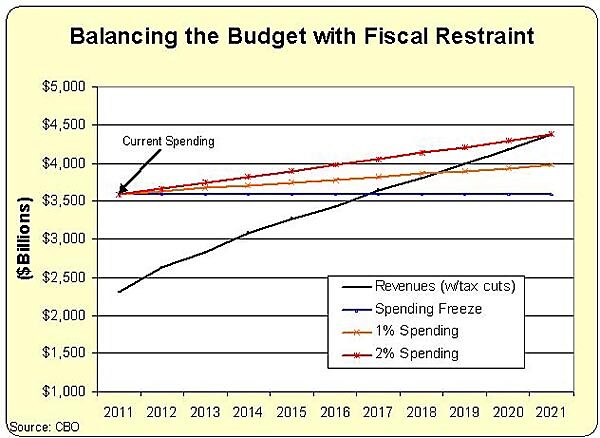According to Lloyd Chapman, the hyperbolic president of the American Small Business League, legislation introduced by Sen. Richard Burr (R‑NC) would close the Small Business Administration. Chapman actually stated on a Fox Business News show that Burr’s bill is “the worst idea in the history of America.” And here I thought it was Rick Santorum’s decision to run for president.
Unfortunately, Burr’s legislation does not close the SBA. It merely combines the SBA, the Department of Commerce, and the Department of Labor into one bigger bureaucracy that would be known as the “Department of Commerce and the Workforce.” In other words, it just rearranges the deck chairs. Title VI of the bill spells out what programs would be terminated (not much) and I don’t see any mention of the SBA.
Although I don’t consider Burr’s bill to be the worst idea in the history of America, I’m not excited about it either. Not only would it not cut federal spending in any meaningful way (if at all), it’s an idea that’s over a hundred years old. A Department of Commerce and Labor was created in 1903. In 1913, the Department of Commerce was born when the Bureau of Labor was split off to form a new Department of Labor.
The title of an anti-Burr bill piece recently penned by Chapman calls the SBA “the Most Important Agency in Washington Today.” That’s probably news to even the SBA. Chapman starts off by claiming that “Republican members of Congress have once again drafted legislation aimed at ending all federal programs that assist small businesses.” Huh?
Then there’s this whopper:
To think about closing the only agency in the country that helps small businesses is unconscionable. Clearly Republicans like Senator Burr, his supporters and groups such as the CATO Institute are directed like puppets by the defense and aerospace industry.
Sorry, Lloyd. The essay on terminating the SBA that I recently coauthored with Veronique de Rugy was not written at the behest of the defense and aerospace industry. And I don’t think the defense and aerospace industry has been behind Cato’s work on downsizing the Department of Defense either.
Whereas the essay I wrote with Veronique is primarily focused on why the SBA’s loan guarantee programs should be abolished, Chapman and his organization are primarily focused on making sure that small businesses get a certain percentage of government contracts. Chapman is correct that government contracting is fraught with fraud and abuse. In that regard, he says that the SBA needs to be cleaned up. But if the SBA has failed as an independent agency after all these years to please Chapman, why then would it be the end of the world to fold the SBA into a cabinet-level agency?
I’m probably just wasting my time asking the question. After all, this is same Lloyd Chapman who caused a ruckus a few years ago because Sen. Tom Coburn (R‑OK) had the audacity to invite Veronique to testify at a hearing on the SBA. In Lloyd’s world, the de Rugy invite meant that Coburn wanted to abolish the SBA. Coburn is now in his second term and still hasn’t introduced legislation to abolish the SBA.
I’m all for a serious discussion and debate on the SBA. The SBA’s loan guarantee programs benefit a relatively tiny number of small businesses at the expense of the vast majority of small businesses that do not receive government support. Moreover, the biggest winners from these loan guarantees are big banks who reap the profits but get to kick the bulk of any losses to the government. One would think a pro-small business/anti-big business guy like Chapman would be concerned by this. Instead, Chapman consistently resorts to wild exaggerations and conspiracy theories. As a result, I can’t take him seriously. It’s too bad policymakers do.


